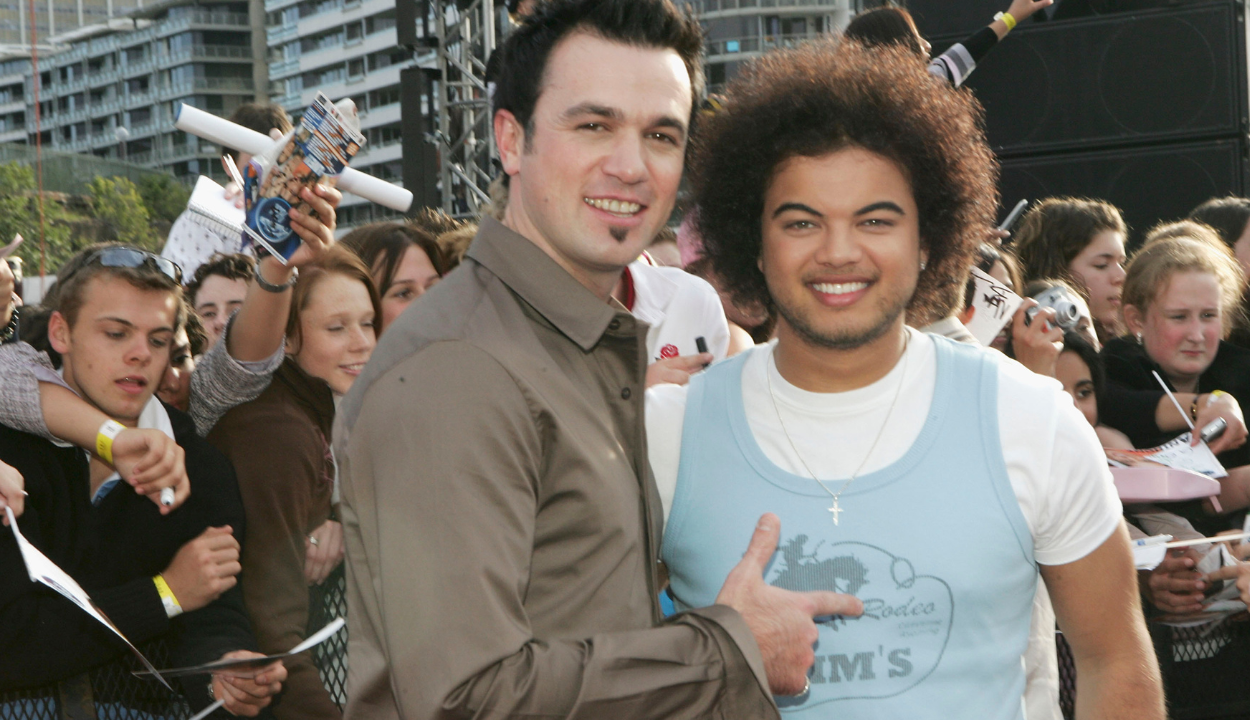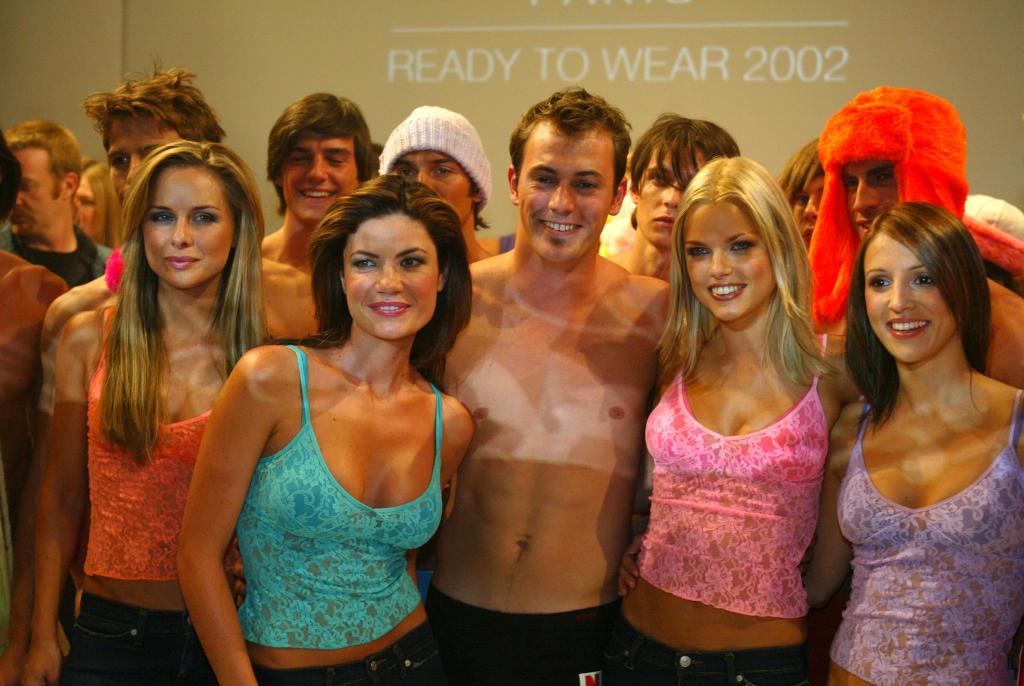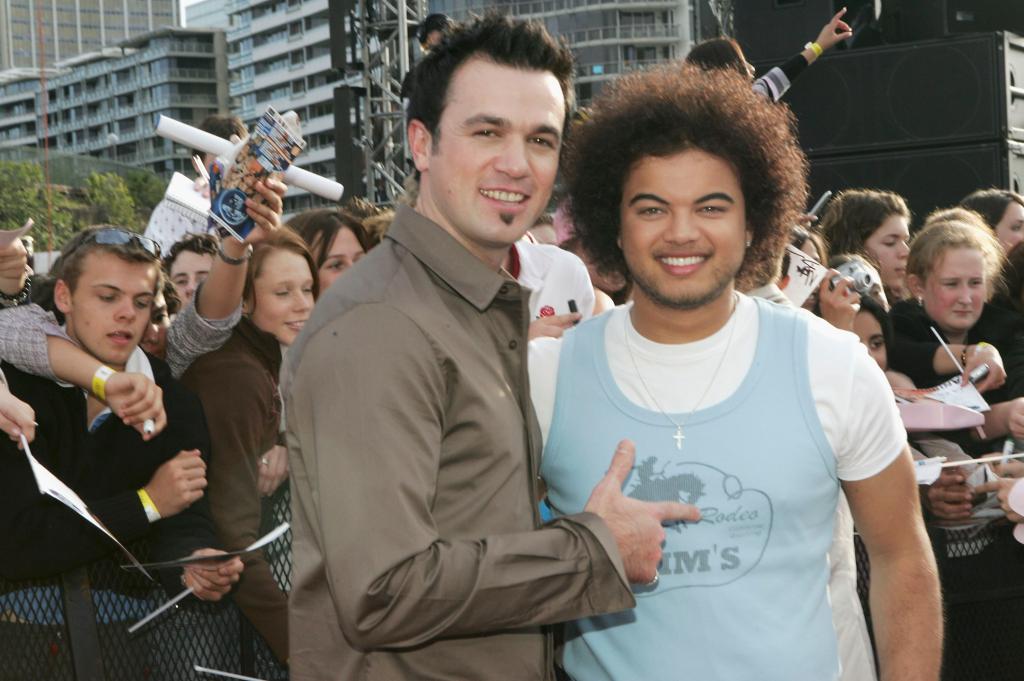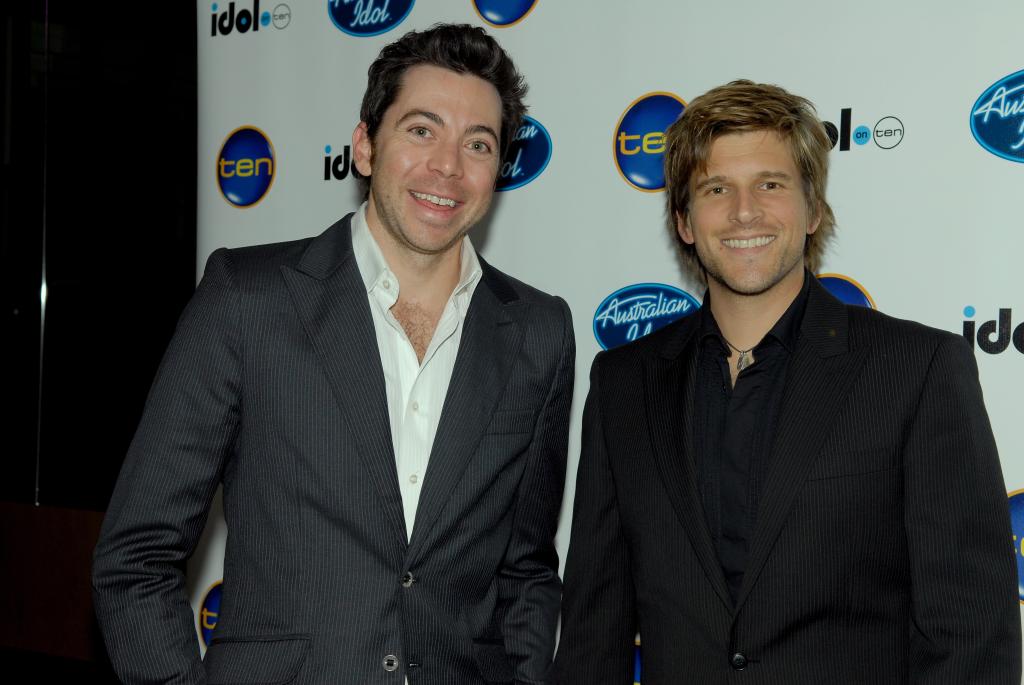
It’s been a whopping 20 years since Guy Sebastian became the first-ever winner of Australian Idol. It was a moment that went down in Australian pop culture history, cementing Guy as a mainstay in the Aussie music industry and in everyone’s mum’s Spotify Wrapped. But since the inaugural season of Australian Idol and Guy’s win, Idol and the way we relate to talent shows in general — has changed significantly. So much so that they’ll never have the same impact as they used to have on us 20 years ago.
Let me explain.
Australian Idol first premiered in 2003. In the grand scheme of things, reality television was relatively new. We’d had Sylvania Waters in 1992 showcasing a real Aussie family. Then there was Popstars in 1999 which followed a group of gals (including the always iconic Sophie Monk!) as they trained to become an unstoppable girl group. But then there was 2001’s Big Brother which truly changed the game.

For the first time, people watching at home could vote to keep or eliminate certain contestants. It employed a level of interactivity in a format that we’d never seen before. And for anyone who can remember, it made for some pretty compelling viewing.
But when Australian Idol hit the scene in 2003, it was the first time that the interactive voting format had been used for a talent show and it blew us out of the water.
In the pre-streaming era where there really was only a handful of shows to tune in to each evening, Idol garnered millions of viewers each night. The iconic finale — which saw Guy Sebastian and the Aussie every-man Shannon Noll battle it out for the title — was watched by 3.3 million people. HUGE.

Not only did the early iterations of Australian Idol make us feel like we had a voice and an impact on the outcome, but it tapped into something that is so deeply ingrained into the Australian psyche — the love of a fair go.
As we tuned into the audition process, marvelling at the talent — and sometimes the delusion — of people from around the country, we were able to get behind the stories of everyday Aussies who wanted to make their mark on the industry no matter where they came from. When we were introduced to Guy back in 2003, he was just a loveable 21-year-old dude from Adelaide who loved to sing in church. It was easy to support someone so wholesome who had more talent in his left pinky than most people could dream of.
Then, there was Shannon Noll. A bloke from a small town in NSW who’d grown up on a farm. He had a Southern Cross tattoo and loved playing gigs around the outback. Instantly, Australia fell in love with the all-Aussie boy from the sticks.
Guy and Shannon made it through multiple rounds, winning the affection of the country until it was just the two of them standing during the finale.
As they both stood anxiously on stage dressed in pinstripe suits, hosts Osher Günsberg (formerly known as Andrew G) and James Mathison drew out the announcement.
“Australia has made their decision after six months of incredibly gruelling competition. The winner of Australian Idol 2003 is…Guy Sebastian,” James said, allowing the deafening applause to ensue.
The two finalists embraced and then, in a sign of pure good sportsmanship, Shannon raised Guy’s hand above his head.
While Guy Sebastian went straight into a record deal and hit the charts with the eternal banger “Angels Brought Me Here”, Shannon had enough of a profile to kickstart his own music career too.
He released a cover of Moving Pictures’ “What About Me” which became the highest-selling single of 2004 in Australia.
The thing is, while Guy managed to take out the Australian Idol title, changing the landscape of talent shows forever, Shannon’s impact was equally as powerful.
For many Aussies, this good-mannered country boy embodied what they believed was great about the nation. His track not only commented on his particular circumstance coming second to Guy but also resonated with so many people who felt disenfranchised around the country.
As reality shows go, Australian Idol had a solid run. It aired from 2003 to 2009, until an influx of competing talent-based reality shows (eg. The X-Factor and Australia’s Got Talent) helped propel it’s declining ratings.
Since the first season, Australian Idol has lived a long, long life. From 2003 to 2009, the format was going strong until the influx of other talent-based reality shows such as The X-Factor and Australia’s Got Talent and a lack of interest from the public resulted in some lacking ratings.
The series was rested until January this year when it was brought back with new contestants, (almost new) judges and hosts. But 20 years on from the initial launch of the series, a lot has changed.

How has the reality television landscape changed?
Gone are the days of a unified, nationwide reality show viewing experience. Families around the country are no longer choosing between the content on four television channels to decide what to watch. Instead, there are multiple streaming services, networks and never-ending options of content available on demand at the click of a button.
These days, the stakes aren’t as high. People are used to having their say on the outcome of shows or competitions. And the contestants are very rarely plucked from obscurity but already have established social media followings. If you scroll through the comments on any reality show’s Instagram page, you’ll see that having influencers as contestants is not exactly favoured by the general public.
And despite traditional television networks leaning on nostalgia to grab viewers’ attention in recent years, it doesn’t seem to be working. Australian Idol’s reboot debuted to 413,000 viewers — only a fraction of the viewer pie from two decades ago. In yet another sign of the times, Big Brother’s Fans Vs Favourites season, which brought back iconic and beloved personalities like Reggie Bird and farmer Dave Graham, only saw numbers 487,000 during its premiere.
While we can’t expect the viewership to be anything like it was 20 years ago, compared to shows like Married At First Sight, which consistently gets around 800,000 viewers, the nostalgia card just isn’t working.

So, where does this leave us now?
Clearly, Australian Idol had an incredible impact on Australian pop culture in the early 2000s. It allowed the country to be unified, to have their say and watch as the underdog comes out on top.
These days, the magic has worn off. Audiences don’t want a walk down memory lane, they crave exciting new content. And while networks are scrambling to work out what that is, I think it’s simple — find an underdog story with real people that everyone can get behind with the same fervour as the Matildas.
Easier said than done, but I’m pretty sure that’ll do it.
The post It’s Been 20 Years Since Guy Sebastian Won Australian Idol. Now, Reality TV Is Unrecognisable appeared first on PEDESTRIAN.TV .







